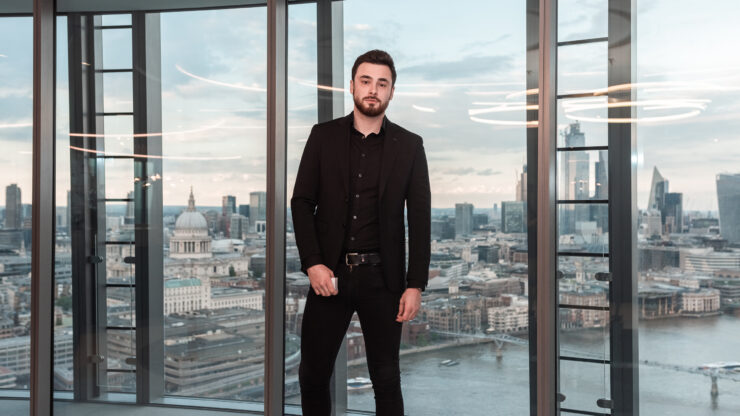A little over a year ago, a buzzy London-based immigration startup called Immigram took Slush, one of the top European startup competitions, by storm, nabbing the top spot and the €1 million prize that came with it.
The moment of victory didn’t last long for the Russian-born team: The organizers succumbed to pressure and criticism from social media that the award was given to Russian-born founders. Ultimately, Slush revoked the award.
Politically, the fall of 2022 was not the moment Russian-born founders could enjoy the limelight, even if they’d been living abroad for years and even if they never supported the Russian government’s war in Ukraine. Trial by Twitter called for their heads and the Slush organizers, along with most of tech media, delivered.
This week, Immigram’s CEO Anastasia Mirolyubova, who was viciously attacked online in the wake of the Slush competition, will be representing the startup at the pitch event held on the sidelines of the Global Forum on Migration & Development in Geneva, Switzerland. Immigram is one of the 10 finalists that will be pitching their solutions between January 23-25 in Geneva.
The event is organized by Seedstars, a Swiss-based company that supports entrepreneurs, and the International Organizations of Employers (IOE), which acts as a consultant within the United Nations.
Immigram’s core product is a relocation platform for IT professionals. The startup raised $500,000 to date, according to Crunchbase, and has helped relocate close to 1,000 people.
Currently, Immigram allows users to create a profile, fill out all the forms and to navigate immigration process without the need to contact an outside lawyer. Immigram’s scoring test asks you a series of 17 questions to narrow down your profile and expertise as an IT professional, which are used to prepare your immigration materials.
Like many companies, Immigram wasn’t an overnight success, but was many years and iterations in the making.
Mikhail Sharonov, who immigrated to London in 2016 from St. Petersburg, Russia, began doing immigration work there in 2018, after a brief experience working for a U.K. immigration law firm. He started out as an unpaid intern. Eventually, after learning the ropes and gaps in the market, he ventured out on his own.
“It wasn’t a startup, it was just me and Nastya (Anastasia) helping out fellow friends or [others] we met to stay in the U.K.,” Sharonov says in an interview with Icebreaker, speaking from Argentina. “What we did is we helped with business plans, we helped with market research, sometimes with investor connections. It was all on a consulting basis.”
When COVID-19 hit, their client work came to a standstill. So they pivoted to helping out tech nomads.
In the spring of 2020, Immigram co-founder and CEO Anastasia was visiting San Francisco, including the so-called DobryDom profiled recently in The New York Times, where ex-Google engineer and investor Andrey Doronichev hosted Russian-speaking entrepreneurs.
That’s when the two co-founders had a call that would change the trajectory of Immigram.
“I remember her calling me with like, Misha, we need to do something, we definitely need to have some startup or some digital idea because nobody wants to talk with me, because I’m not a tech founder,” Sharonov recalled.
So they did just that. Immigram was born.
“Literally on this call, we thought we were gonna do a little virtual platform, and in a few days we created a brand and registered it as a domain,” he says, noting his recollection of company history is a joke.
It may have started as a joke, but the call marked a push to try to evolve into a tech company.
Still, their commitment to developing proprietary technology or remaining competitive could be called into question by investors.
“We don’t do any super deep tech things, it’s a tech startup in a way that Coursera is a tech startup,” Sharonov acknowledges.
He says Immigram was profitable from day one, so they didn’t need to fundraise. It was Igor Kim’s Xploration Capital that approached them.
“It was never a thing where we decided, okay, we’re going to fundraise,“ Sharonov recalls.
They secured their first round months before the Russian invasion of Ukraine and decided to hold off on an announcement to build up the product.
When the war broke out, they didn’t know what to do.
“How do you announce your own good [news] when people are killing each other?” Sharonov says.
They ended up announcing their funding round in April, two months after the invasion, which made it look like a product they created in response to the major outflow of IT talent from the region.
“As Russians head for the exits, Immigram platform launches to scale professional migration,” the TechCrunch headline proclaimed.
While a lot of Russian investors and companies were hit by sanctions, Sharonov said that Immigram was never impacted by any measures that followed – except for the social media backlash.
“We’re never had anything in Russia,” he says. “Therefore, we didn’t we didn’t have any issues whatsoever.”
When the Slush-related controversy happened, some of the startup’s investors came to its defense.
“There is nothing that can justify the actions of the Russian government and its supporters, however, Anastasia is not one of them, nor is Immigram,” said Mikita Mikado at the time in a LinkedIn post. “Some within the Kremlin can be popping champagne now: Their dissident enemies are now [being] prosecuted.”
A year plus later, Immigram is trotting along, presenting its product once again in Europe. It is also adding more options to their services, and expanding in high-demand markets like South America.
While Sharonov says they’re not actively fundraising right now, the company has ambitious plans to expand both B2C and B2B operations. On the B2B side, they’re looking to work with companies in the U.S. and the U.S. to help source talent around the globe.
“Our plan is to continue doing the B2C business, helping people start new lives and earn considerably more in the United States and the U.K.,” Sharonov also shares. “We’ll add Australia, Canada and France as well I think in the next couple of years.”






Add comment